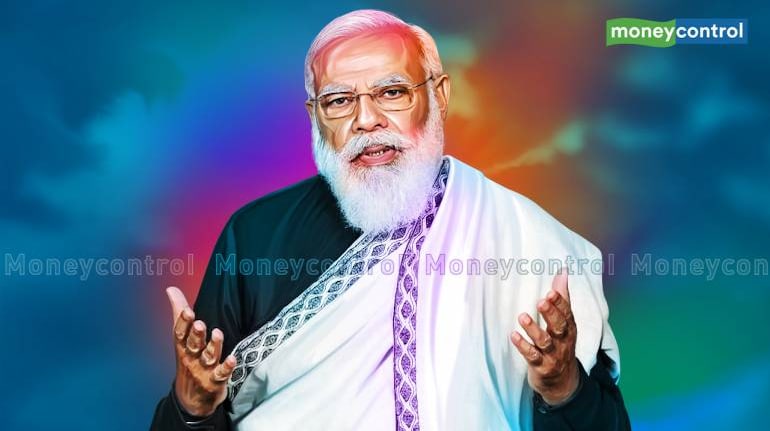



Prime Minister Narendra Modi, while addressing the Global COVID-19 Summit on September 22, said "mutual recognition of vaccine certificates" is imperative to make international travel easier amid the ongoing pandemic.
Modi's remarks come amid the controversy over the United Kingdom making it mandatory for vaccinated Indian travellers to get quarantined, as it is yet to recognise the Indian vaccine certification system.
"We also need to focus on addressing the pandemic’s economic effects. To that end, international travel should be made easier, through mutual recognition of vaccine certificates," Modi said.
Also Read | Engaged with India to expand recognition of COVID-19 vaccines, says UK amid backlash over new travel rules
The prime minister, in his address, noted that the coronavirus pandemic is not over yet as a significant population of the world is still to be vaccinated.
The Global COVID-19 Summit was called by US President Joe Biden on the sidelines of 76th UN General Assembly, in a bid to rally world leaders, NGOs and civil society groups to adopt a "common vision to end Covid-19 together" by end of the year 2022.
"The COVID-19 pandemic has been an unprecedented disruption and it is not yet over. Much of the world is still to be vaccinated. That is why this initiative by President Biden is timely and welcome," Modi said.
The prime minister highlighted the steps taken by India's pharmaceutical industry to aid the world's effort in combating the pandemic. The cost-effective options being provided by the Indian companies have helped the developing nations, he pointed out.
"India has always seen humanity as one family. India’s pharmaceutical industry has produced cost-effective diagnostic kits, drugs, medical devices, and PPE kits. These are providing affordable options to many developing countries," he said.
"We have shared medicines and medical supplies with over 150 nations," Modi added.
The prime minister also pointed towards his country's contribution towards vaccine development. "Two indigenously developed vaccines have received Emergency Use Authorisation in India, including world's first DNA-based vaccine," he said.
The first indigenously made Indian vaccine to be approved in the country was Covaxin, developed by Hyderabad-based Bharat Biotech, followed by ZyCoV-D , the world's first DNA vaccine developed by drugmaker Zydus Cadila.
"Several Indian companies are also involved in licensed production of various vaccines," Modi added.
As newer Indian vaccines get developed, the country is also ramping up the production capacity of existing vaccines, he said.
"As our production increases, we will be able to resume vaccine supplies to others too. For this the supply chains of raw materials must be kept open," Modi underlined.
The prime minister also said that in coordination with India's Quad partners - Australia, Japan and the United States - the country's vaccine manufacturing strength will be used to increase supplies for the Indo-Pacific region.
Modi also used the summit to recall the demand for a temporary patent waiver, raised before the World Trade Organisation, for COVID-19 vaccine diagnostics and medicines. The waiver "will enable rapid scaling of the fight against pandemic", he said.
Discover the latest Business News, Sensex, and Nifty updates. Obtain Personal Finance insights, tax queries, and expert opinions on Moneycontrol or download the Moneycontrol App to stay updated!
Find the best of Al News in one place, specially curated for you every weekend.
Stay on top of the latest tech trends and biggest startup news.